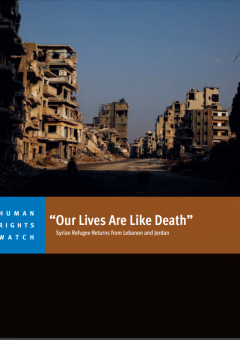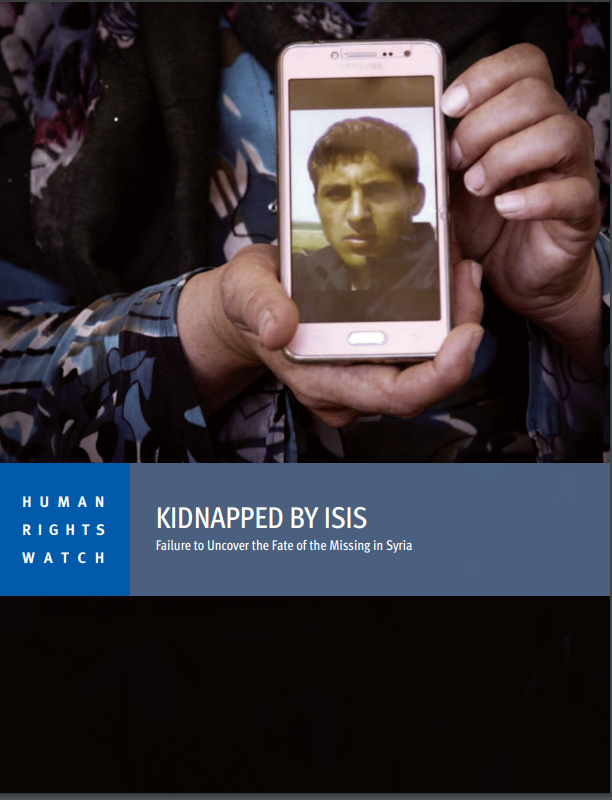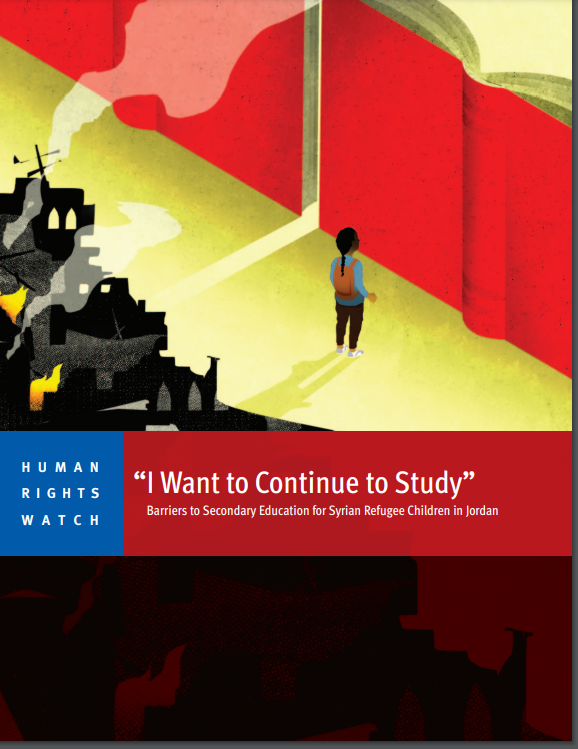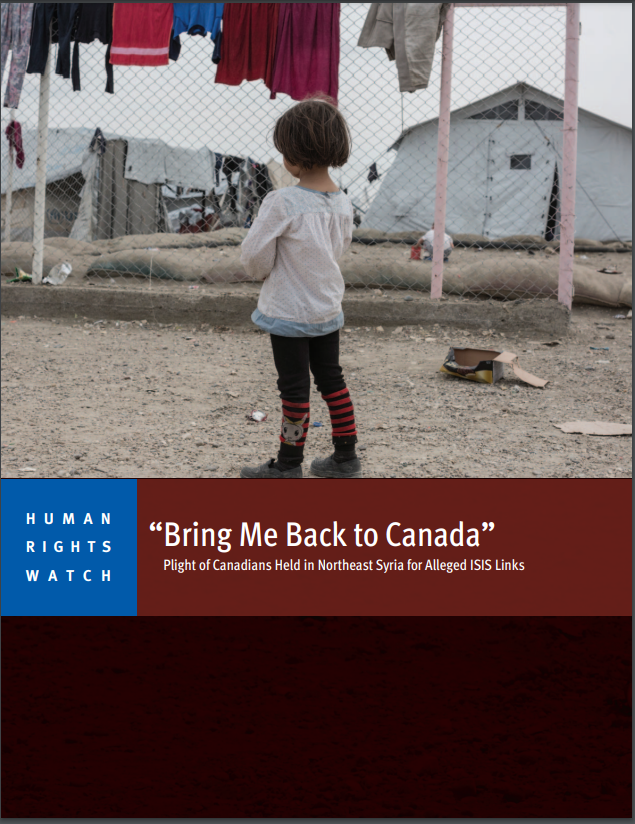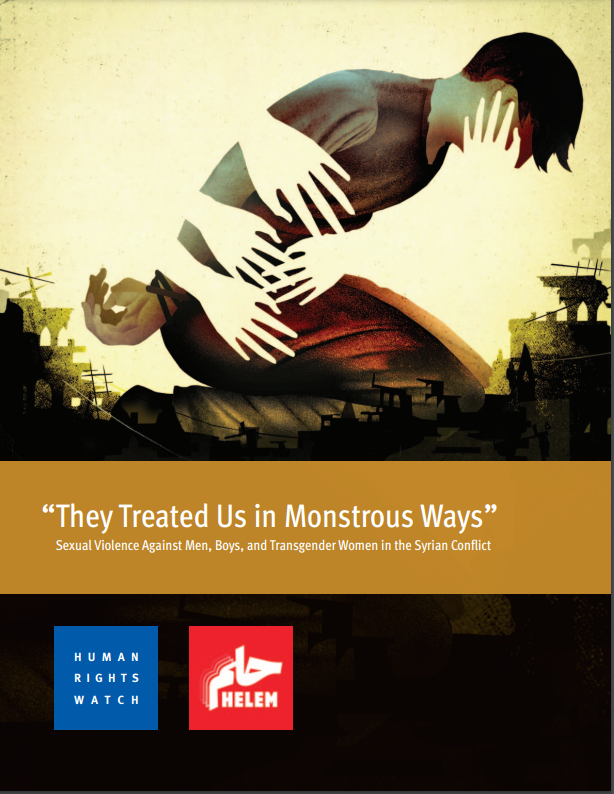Syrian refugees who voluntarily returned to Syria between 2017 and 2021 from Lebanon and Jordan faced grave human rights abuses and persecution at the hands of Syrian government and affiliated militias, including torture, extra-judicial killings, and kidnappings. The majority of those interviewed by Human Rights Watch also struggled to survive and meet their basic needs in a country decimated by conflict and widespread destruction.
After a decade-long civil war, Syrian refugees are the world’s largest refugee population. Spread over 127 countries – with the highest absolute numbers in Turkey – Lebanon and Jordan host the highest ratio of refugees relative to their populations. Lebanon and Jordan at first welcomed refugees with borders kept open to facilitate large refugee flows. As the numbers of refugees in Lebanon increased, however, Lebanon adopted a range of coercive and abusive measures including discriminatory curfews, evictions, arrests, and other restrictions on legal residency and access to employment and education. Amidst Lebanon’s catastrophic economic collapse, exacerbated by the Covid-19 pandemic, over 90 percent of Syrian refugees live in extreme poverty, relying on credit and mounting debt to survive. In Jordan, only two percent of refugee households can meet their essential food needs. Despite these stark figures, humanitarian aid appeals remain dramatically underfunded across the region. In 2020, only 52 percent of the amount UN agencies requested across the five main refugee-hosting countries – Turkey, Lebanon, Jordan, Iraq, and Egypt – was funded. Lebanon was 57 percent and Jordan 47 percent funded respectively in 2020.

